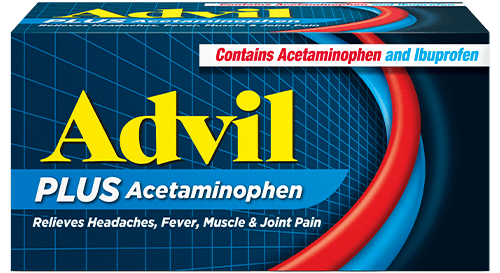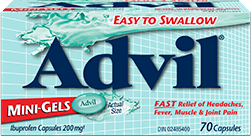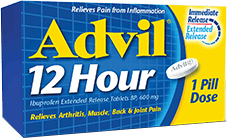Triggers and Causes
Try to prevent future migraines by identifying possible triggers and causes.

Diet. Lack of sleep. Hormone changes. Bright lights. Stress. There are several different factors believed to cause migraines. Some you can control, and others – hello weather – you can’t.
Triggers can be highly individual – what triggers a migraine in one person may have no effect on another. Plus, often it’s a combination of things, making research in this area difficult. There are, however, a number of common, recognized triggers.
Not every migraine is tied to a trigger, but if yours are, learning your personal triggers can help you avoid them and possibly even the pain.
Food and Drink Triggers
If you suffer from migraines, you may want to watch what you eat. Though scientific studies haven’t absolutely confirmed any particular food as a migraine trigger, many people report certain foods can bring on their headaches.
Common food triggers include cheese, red wine, MSG, soy sauce, caffeine and processed meats.
Tyramine
Tyramine is a natural substance found in many foods – and it’s especially high in aged and fermented foods. While experts are still trying to understand exactly how it causes migraines, it is believed that it triggers the release of certain chemicals and hormones into your bloodstream, causing changes in your brain.
High tyramine foods include:
- Aged cheeses
Cheddar, blue, Camembert and Brie, Swiss, feta, Muenster, Parmesan - Cured meats
Pepperoni, salami and other dry sausages, pickled or smoked fish, caviar, some meat-extract sauces or gravies or bouillon-based sauces - Some fruit, veggies and beans
Oranges, grapefruit, lemons, limes, tangerines, pineapple, fava and broad beans, raw onions, overripe bananas and avocados - Alcohol
Some types of beer, especially tap beers, red wine, vermouth, Champagne, and some hard liquors - Fermented foods
Fermented soy foods, like soy sauce, fish sauce, miso, bean curd, tempeh, tofu, kimchee, sauerkraut, kombucha - Pickles
- Sourdough breads
Tyramine is a well-accepted migraine trigger.
MSG (monosodium glutamate)
MSG is a chemical added to food to enhance flavour or extend its shelf life. And if you are sensitive to it, it can spark a migraine in 20 minutes. It is sometimes listed as all-natural preservatives or hydrolyzed protein on packaged goods, but in Canada it must always be listed in the ingredients. MSG can be found in the following foods:
- Soy Sauce
- Meat tenderizer
- Some pre-packaged or processed foods
- Some flavouring agents
- Some restaurant foods
- Some foods naturally contain MSG, such as potatoes, peas, tomatoes and tomato juice, mushrooms, grapes, grape juice and other fruit juices, as well as some cheeses
MSG may trigger horrible migraines in 10% to 15% of those who experience migraines.
Nitrates and nitrites
Once these chemicals get into your system, they cause your blood vessels to swell, which can trigger a headache. They are found in many cured and processed meats:
- Hot dogs
- Ham
- Bacon
Aspartame
It is unclear how this artificial sweetener triggers headaches, still you may want to limit its use.
Aspartame-containing products include:
- Diet soda
- Many sugar-free labelled foods
- Reduced-calorie fruit juice
- Gum
- Some yogurt
Caffeine
Too much caffeine can cause headaches, but so can caffeine withdrawal. The key to caffeine is moderation. In fact, some consumers claim that caffeine can actually help stop their migraine attack. Caffeine is an ingredient in some migraine relief medications, and can be found in the following food items.
- Coffee
- Tea
- Chocolate
- Some sodas
Lifestyle Triggers
Sleep
Not enough sleep can contribute to migraines, but too much sleep can also be a trigger. Trouble sleeping, sleeping in, and jet lag are just a few of the sleep disruptions that can trigger migraines. Also, if your headaches tend to come on in the early morning, chances are they have something to do with your sleep patterns.
Your body and mind recharges when you sleep. When sleep doesn’t go well, your judgment, mood, and memory are all affected. And that, in turn, can affect another migraine trigger – your stress level.
Anxiety and Stress
Emotional stress is a very common migraine trigger. Big events and changes like starting a new job or moving to a new home, are more obvious sources of pressure. More often though, it’s the day-to-day challenges, like balancing your work, family and social lives that get to us the most.
Sleep and stress also have big effects on each other. Stress is one of the leading causes of restless nights, and lack of sleep can exacerbate your anxiety levels. It can be a vicious cycle, but on the upside, getting your stress and sleep patterns under control can create a positive ripple effect.
Physical Exercise
Although research shows moderate and regular exercise can reduce the frequency of attacks, some people find that strenuous and intense physical exertion, including sexual activity, can trigger a migraine. Examples of intense physical exercise include:
- Weightlifting
- Rowing
- Running
- Tennis
- Swimming
- Football
Environmental Triggers
Some triggers are less controllable than others, however being aware of these triggers and doing your best to minimize them can save you from some pain.
Weather
- Changes in weather or barometric pressure, or extreme changes in weather or climate
Lights
- Bright or flashing lights, sun glare, fluorescent bulbs, television, computer or movie screens
Loud or excessive noises
Strong smells
- Such as perfumes, paint thinner, and second-hand smoke
Hormonal Triggers
For many women with a history of migraines, changes and fluctuations in hormone levels seem to trigger an attack.
Menstrual cycle
- Often either a few days before or during their period, when estrogen levels drop.
Major body changes
- Some women develop migraines during pregnancy or menopause.
Hormonal medications
- For some women, taking oral contraceptives or hormone replacement therapy may trigger migraines, however others find their migraines occur less often.
For more information about migraines, go to the migraine section on our website.
Sources:
- Ana Gotter. “10 Foods That Trigger Migraines.” Healthline, Healthline Media, www.healthline.com/health/foods-that-trigger-migraines#salty-foods#foods-containing-msg. Medically reviewed by Natalie Butler, RD, LD on March 31, 2017
- Janet Renee. “A List of Foods With MSG.” LIVESTRONG.COM, Leaf Group, www.livestrong.com/article/317694-a-list-of-foods-with-msg/.
- Merle L. Diamond, and Dawn A. Marcus. “Diet and Headache Control.” American Migraine Foundation, American Migraine Foundation, 13 Aug. 2016, www.americanmigrainefoundation.org/resource-library/diet/.
- “Exercise.” The Migraine Trust, The Migraine Trust, www.migrainetrust.org/living-with-migraine/coping-managing/exercise/.
- Hard Facts on Tough Migraines. Hard Facts on Tough Migraines, Advil®. https://www.advil.ca/sites/default/files/adv-12002_migraine_tearsheet_en_04-30-12_0_1.pdf
- “Migraine Triggers: Sleep Problems, Stress, and Their Combined Effect.” WebMD, WebMD, www.webmd.com/migraines-headaches/migraine-prep-19/sleep-stress-migraine-triggers. Reviewed by Lawrence C. Newman, MD on January 09, 2019
- “Migraines Pictures: What Aura Looks Like, Tracking Triggers, and More.” WebMD, WebMD, www.webmd.com/migraines-headaches/ss/slideshow-migraine-overview. Reviewed by Stephen D. Silberstein, MD on August 09, 2017
- “The Timeline of a Migraine Attack.” American Migraine Foundation, 18 Jan. 2018, www.americanmigrainefoundation.org/resource-library/timeline-migraine-attack/.
- The Healthline Editorial Team. “The Truth About Aspartame Side Effects.” Healthline, Healthline Media, www.healthline.com/health/aspartame-side-effects#products. Medically reviewed by Natalie Butler, RD, LD on March 5, 2018
- Jamie Van Eaton. “Tyramine-Free Diets: Foods to Eat.” Healthline, Healthline Media, www.healthline.com/health/tyramine-free-diets#tips. Medically reviewed by Natalie Butler, RD, LD on February 1, 2019
- “Tyramine-Rich Foods As A Migraine Trigger & Low Tyramine Diet.” WebMD, WebMD, www.webmd.com/migraines-headaches/tyramine-and-migraines#1. Reviewed by Jennifer Robinson, MD on August 18, 2018
- “Exercise-Induced Migraines: Symptoms, Prevention, and More.” Healthline, Healthline, https://www.healthline.com/health/migraine/exercise-induced-migraines#exercise-and-migraines
Be sure this product is right for you. Always read and follow the directions on the label. This information is provided for educational purposes only and should not be used as a substitute for professional medical advice, diagnosis, or treatment. Speak to your healthcare professional before making any changes to your lifestyle or before beginning or discontinuing any course of treatment. Never disregard professional medical advice or delay in seeking it because of something you have read on this site.





